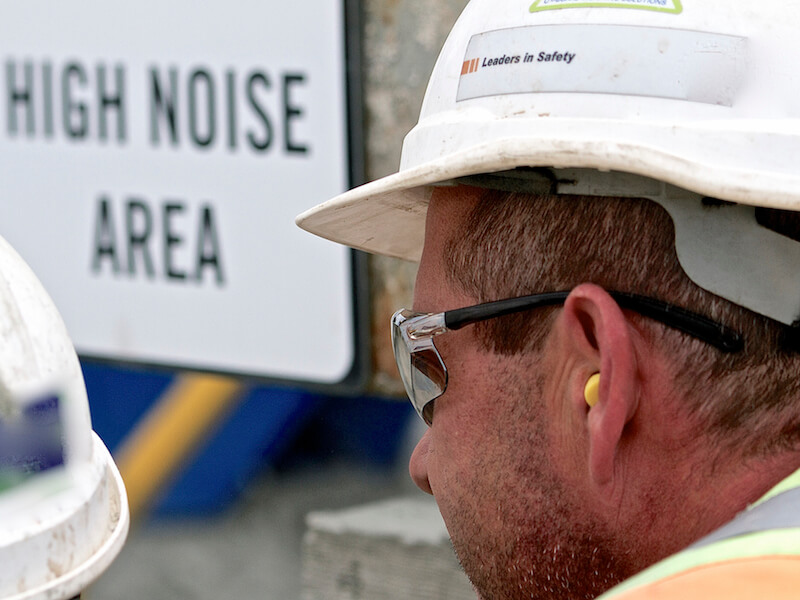
A noisy workplace isn’t all that great for your ears (or your concentration, for that matter). Even moderate noise, when experienced for eight hours a day, can start to weaken the health of your hearing. This is why questions like “what hearing protection do I need?” are worth asking.
Most of us probably didn’t even know there were multiple levels of hearing protection. But it makes sense when you stop to think about it. A truck driver won’t require the same level of protection that a jet engine mechanic will.
Hearing Damage Levels
The basic rule of thumb is that 85 decibels (dB) of sound can start damaging your ears. We aren’t really used to considering sound in terms of decibels (even though that’s how we measure sound – it’s just not a figure we’re used to putting into context).
Eighty-five decibels is approximately how loud city traffic is when you’re driving your car. No biggie, right? Wrong, it’s a big deal. At least, it’s a big deal after several hours. Because it isn’t just the volume of the noise that you need to pay attention to, it’s the duration of exposure.
Common Danger Zones
It’s time to think about ear protection if you are exposed to noise at 85 dB or more for 8 hour days. But there are a few other important thresholds to take note of. If you’re exposed to:
- 90 dB (e.g., lawnmower): Damage will begin to occur to your hearing if you’re exposed to this level of noise for 4 hours a day.
- 100 dB (e.g., power tools): Your hearing will be injured when exposed to this level of noise for 1 hour a day.
- 110 dB (e.g., leaf blower): Injury to your hearing occurs after 15 minutes of exposure to this noise level.
- 120 dB (e.g., rock concert): If you are exposed to this level of noise for any amount of time, your hearing can be harmed.
- 140 dB (e.g., jet engine): Any exposure can cause damage and might even cause immediate pain.
When you are going to be exposed to these volumes of noise, use hearing protection that will bring the volume in your ears down below 85 dB.
Find a Comfortable Fit
The effectiveness of hearing protection is measured by something called a Noise Reduction Rate, or NRR. Outside sound will become progressively quieter the higher the NRR.
The majority of workplaces will have recommendations as to what level of protection will keep your hearing safe because it’s important to have the right protection.
But there’s another element to think about as well: comfort. It’s very important that your hearing protection is comfortable to wear if you want to keep your hearing safe. This is because you’re not as likely to actually use your hearing protection if it’s uncomfortable.
Hearing Protection Options
There Are Basically Three Options:
- Earmuffs.
- Earplugs that stay just outside of the ear canal.
- Earplugs that sit within the ear canal
There are benefits and drawbacks to each type of protection, but much of your hearing protection choices will come down to personal preference. For some people, earplugs are irritating, so they’d be better served with earmuffs. Other people might value the leave-them-in-and-forget-them approach of earplugs (obviously, you won’t want to forget them for too long… you should take them out at the end of your workday. And clean them).
Consistently Use Protection That Works Best For You
Any laps in your hearing protection can lead to damage, so comfort is a major factor. If earmuffs are scratchy and uncomfortable you’re more likely to take them off for short periods and that can have a negative effect on your hearing over time. This is why hearing protection that you can leave in for the entire workday is the best choice.
You’re ears will stay happier and healthier if you find the correct level of hearing protection for your situation.
Call Today to Set Up an Appointment
References
https://www.cdc.gov/nceh/hearing_loss/what_noises_cause_hearing_loss.html

